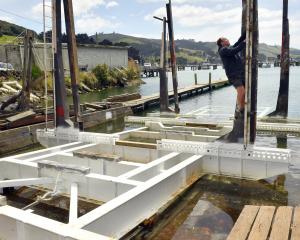
Kaan’s Catering Supplies, which employed between 170 and 180 people, had put a consultation document to employees discussing the likely job cuts.
Managing director Lindsay Kaan said he was desperate for Level 2 and more restaurants to open for delivery.
"There is definitely going to be [redundancies] but we’re not sure [how many] yet.
"If people go to the restaurants and they open up it might not be as bad as what we think, but at the moment ... it is difficult.
"The sooner we can get to [Level 2] the sooner we can get some sort of sort of ... stability and know what we’re doing."
Under lockdown the company was able to operate as an essential service delivering to places like rest-homes, and also delivered groceries to homes.
The Government’s wage subsidy would run out after 12 weeks, and if revenue stayed low at that point jobs would have to be cut.
"With the wage subsidy we can do it. But without, with the level of business that’s dropped, of course you can’t keep the same numbers," Mr Kaan said.
The company had received wage subsidy payments totalling $1,186,276.80 for 176 employees.
The company is one of Otago’s biggest wholesale food distributors and also has a branch in Christchurch.
The scheme states an employer must retain staff paid the wage subsidy for its duration.
The subsidy was helpful now, but Mr Kaan was wary it would not be for much longer.
The proposal for potential job cuts was in a "consultation period" with staff.
"You don’t like to let your staff go. We’ve got a good bunch of staff and it’s not an easy process by any means.
Speaking to other business owners, Mr Kaan was concerned there would be many that would follow in his company’s footsteps and have to let people go.
"Especially all the restaurant owners and all that sort of stuff. Doing what we’re doing at Level 3 is very difficult to do for a lot of places."
Mr Kaan reiterated a common message among the business community in the South — to support local — and said it would save jobs.
"Really just need to get people to remember to support local companies, more than overseas companies."
Kaan’s was working to identify local suppliers and where they could do more deliveries with their products.
About 95% of the company’s staff were working part-time on a rotational basis.












